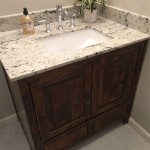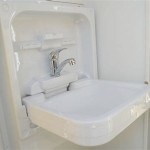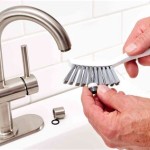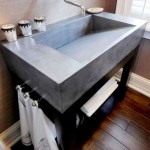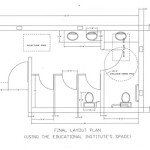Does a Bathroom Add Value to a Home?
The question of whether a bathroom adds value to a home is a complex one, influenced by numerous factors including location, the existing condition of the property, overall market trends, and the specific features of the bathroom itself. While it's generally accepted that bathrooms are essential components of a habitable dwelling, understanding the nuances of how they contribute to property value requires a deeper examination.
A well-maintained and updated bathroom can significantly enhance a home's appeal to potential buyers. Conversely, a dilapidated or outdated bathroom can detract from the overall impression and potentially lower the perceived value of the property. The perceived value isn't solely based on the functional aspect; it also heavily relies on the aesthetic appeal and the feeling of comfort and luxury the bathroom evokes.
The Importance of Bathroom-to-Bedroom Ratio
One critical factor influencing the value added by a bathroom is the ratio of bathrooms to bedrooms within a property. A home with a higher bathroom-to-bedroom ratio is generally considered more desirable, particularly for larger families or those who value privacy and convenience. For instance, a three-bedroom house with only one bathroom might be viewed as less attractive compared to a similar house with two bathrooms. The presence of an en-suite bathroom connected to the master bedroom is particularly valued, offering enhanced privacy and convenience for the homeowners.
The ideal bathroom-to-bedroom ratio can also vary depending on the target demographic. A smaller starter home might be perfectly acceptable with a single well-appointed bathroom. However, a larger, more upscale property targeting families or older buyers would typically be expected to have at least two bathrooms, ideally with one being a master en-suite. Failing to meet these expectations can negatively impact the perceived value and marketability of the property.
Adding a bathroom to a house that is lacking in this area can be a significant value-add, especially if it addresses a clear deficiency. This is perhaps most evident in older homes that were originally built with only one bathroom, catering to a different lifestyle than what is common today. The cost of adding a bathroom can be substantial, involving plumbing, electrical work, and construction, but the increased value and appeal of the home can often justify the investment.
The Impact of Bathroom Features and Fixtures
The specific features and fixtures within a bathroom play a crucial role in determining its contribution to overall property value. Modern, high-quality fixtures, such as low-flow toilets, energy-efficient showerheads, and stylish faucets, are highly desirable and can signal to potential buyers that the home is well-maintained and up-to-date. Conversely, outdated or poorly maintained fixtures can create a negative impression and suggest that the property requires costly renovations.
The type and quality of materials used in the bathroom's construction and design are also important considerations. High-end materials like granite or quartz countertops, porcelain or ceramic tile flooring, and custom cabinetry can significantly enhance the bathroom's aesthetic appeal and perceived value. Investing in these types of materials can create a sense of luxury and sophistication that resonates with discerning buyers.
Beyond the basic fixtures and materials, certain features can further enhance the value of a bathroom. These might include features like a whirlpool tub, a separate walk-in shower, heated floors, or towel warmers. These amenities can transform a basic bathroom into a spa-like retreat, appealing to buyers seeking comfort and luxury. The inclusion of such features can differentiate a property from its competition and justify a higher asking price.
Smart bathroom technology is another emerging trend that can increase a bathroom's value. This includes features like smart toilets with built-in bidets and self-cleaning functions, digital shower systems that allow for precise temperature control, and voice-activated lighting and ventilation. While these technologies might not be universally appealing, they can attract tech-savvy buyers and add a modern touch to the bathroom.
The Role of Location and Demographics
The location of a property and the demographics of potential buyers play a significant role in determining the value added by a bathroom. In upscale neighborhoods or areas with a high concentration of families, the presence of multiple bathrooms, particularly en-suite bathrooms, is almost essential. Buyers in these markets are often willing to pay a premium for homes that offer enhanced privacy and convenience, and a well-appointed bathroom can be a key selling point.
In contrast, in more affordable neighborhoods or areas with a higher concentration of single individuals or young couples, the value added by an additional bathroom might be less pronounced. While a well-maintained bathroom is still important, buyers in these markets might be more focused on other factors, such as location, affordability, and the overall condition of the property. The investment in high-end bathroom features might not yield the same return in these areas as it would in a more affluent neighborhood.
Local market trends also play a crucial role. In a seller's market, where demand is high and inventory is low, even a basic bathroom can contribute to the overall appeal of a property. However, in a buyer's market, where buyers have more options and competition is fierce, a well-appointed and updated bathroom can be a critical differentiator. Sellers in these markets might need to invest in bathroom renovations to attract potential buyers and command a higher price.
Furthermore, accessibility and universal design are becoming increasingly important, especially as the population ages. Features like walk-in showers, grab bars, and raised toilet seats can appeal to a wider range of buyers, including those with mobility limitations. Incorporating these features can not only enhance the value of a bathroom but also make the home more accessible and inclusive.
The condition of the plumbing and electrical systems within the bathroom is also a critical factor. Potential buyers will be wary of outdated or faulty systems that could lead to costly repairs down the line. Addressing any plumbing or electrical issues before listing a property can alleviate these concerns and increase its perceived value.
Ultimately, the degree to which a bathroom adds value to a home is a multifaceted issue. By considering the bathroom-to-bedroom ratio, the quality of features and fixtures, and the influence of location and demographics, homeowners can make informed decisions about bathroom renovations and upgrades that will maximize their return on investment.

How Much Does An Extra Bathroom Add To The Value Of A House Resi

How Much Value Does A Bathroom Add In 2024 Badeloft

Does A New Bathroom Add Value To House Finbra

How To Add Value Your Home By Upgrading Bathroom Qs Supplies

How Much Value Does A Bathroom Add In 2024 Badeloft

How Much Value Does Another Bathroom Add Checkatrade

Do Wetrooms Add Value Ccl

How Much Value A Bathroom Renovation Can Add To Your Home

Can A New Bathroom Add Value To Your Home M J Burt

Best Worst Renovations To Add Value Your Property
Related Posts
